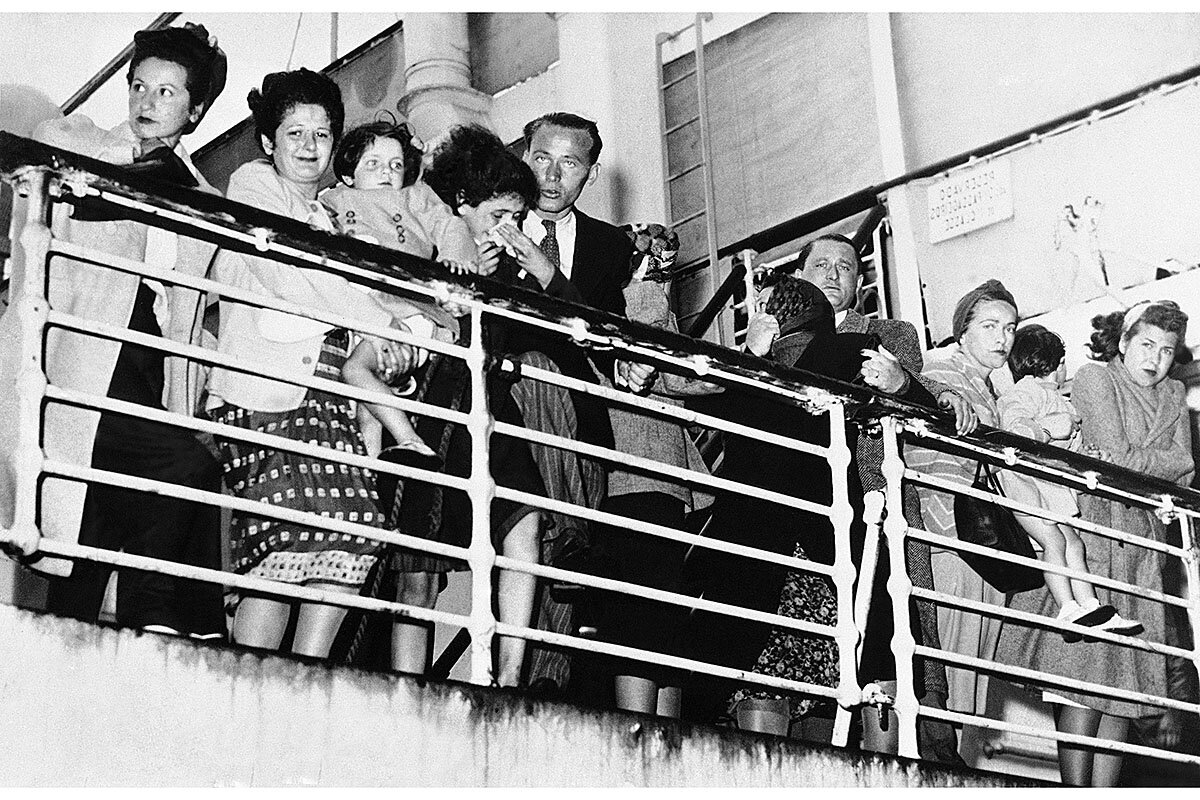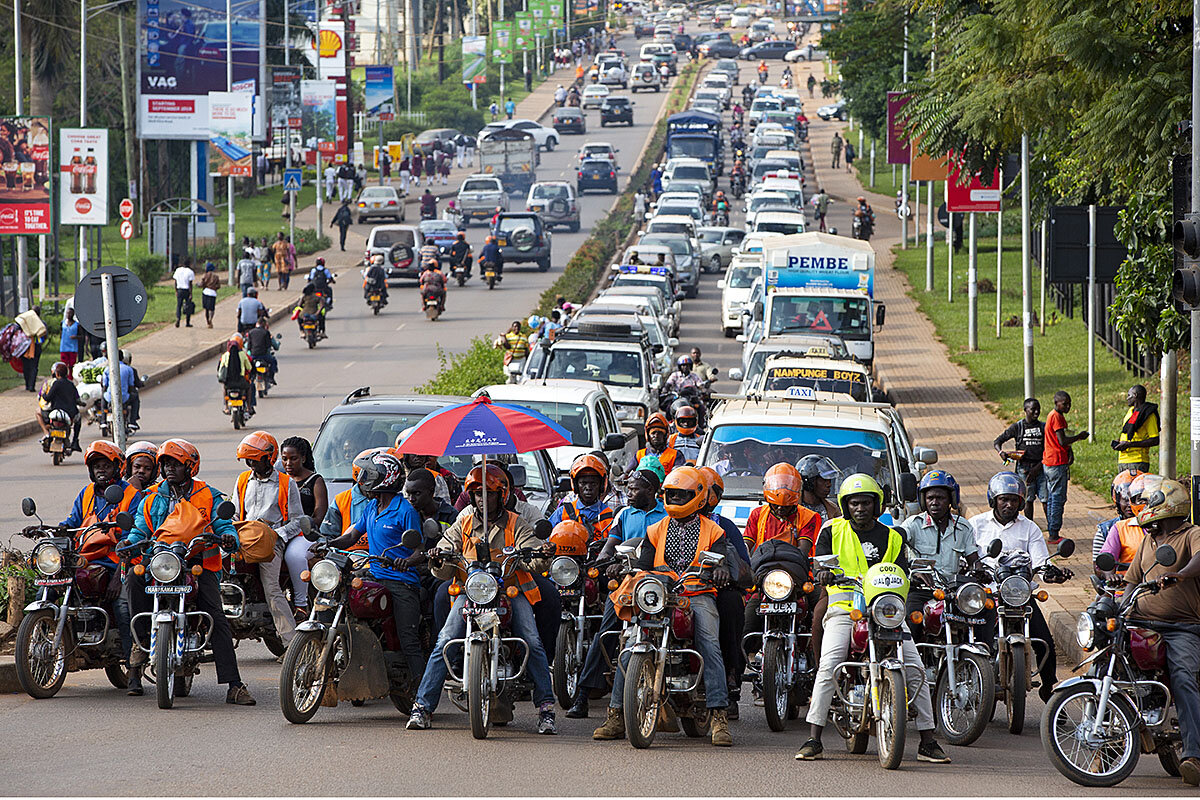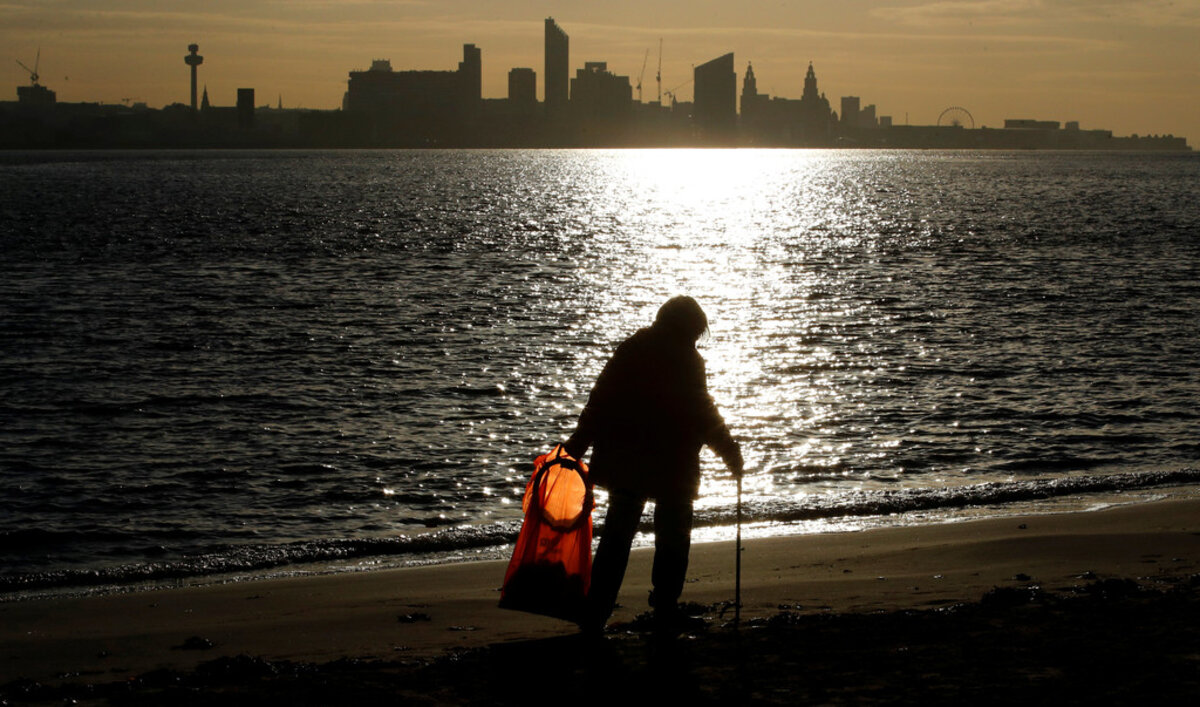Moscow’s urban professionals for many years have been willing to surrender political activism in exchange for material gains. But the protests roiling the city in recent weeks show a political reawakening.
Monitor Daily Podcast
- Follow us:
 Kim Campbell
Kim Campbell
Welcome to the Daily. Our stories today include one on mounting protests in Moscow and several focused on problem-solving – around Confederate statues in Atlanta, immigration and job training in the United States, and transportation in Uganda.
But first, in Dhaka, Bangladesh, women are doing something unusual to help each other: riding scooters.
As in other parts of the world (see today’s story from Kampala, Uganda), two-wheelers are a time-saving way to navigate gridlock. But Lily Ride also helps with another issue: sexual harassment. More than 90% of women who use public transportation in Bangladesh , and they also encounter it from typically male scooter drivers. Having both genders on the road is in demand, but not always welcome.
“If our prime minister can be a woman, why can’t I ride a bike?” one new driving recruit, undeterred by critics, .
The jobs in Dhaka are contributing to the improved access to resources mentioned “Progress of the World’s Women 2019-2020: Families in a Changing World.” Elsewhere, in the U.S., job training support is being offered to women by people like Marvin DeJear, whose contributions we highlight today.
Migration is another focus of the report, recommending that women refugees and asylum-seekers be registered separately from men, and granted separate residency, too. One woman’s experience immigrating to the U.S. during World War II is featured in today’s package.
Back in Dhaka, Syed Saif has seen greater agency come from the service he founded. “We believe that when women are more free and independent on the roads, they can be more strong in their households as well.”












